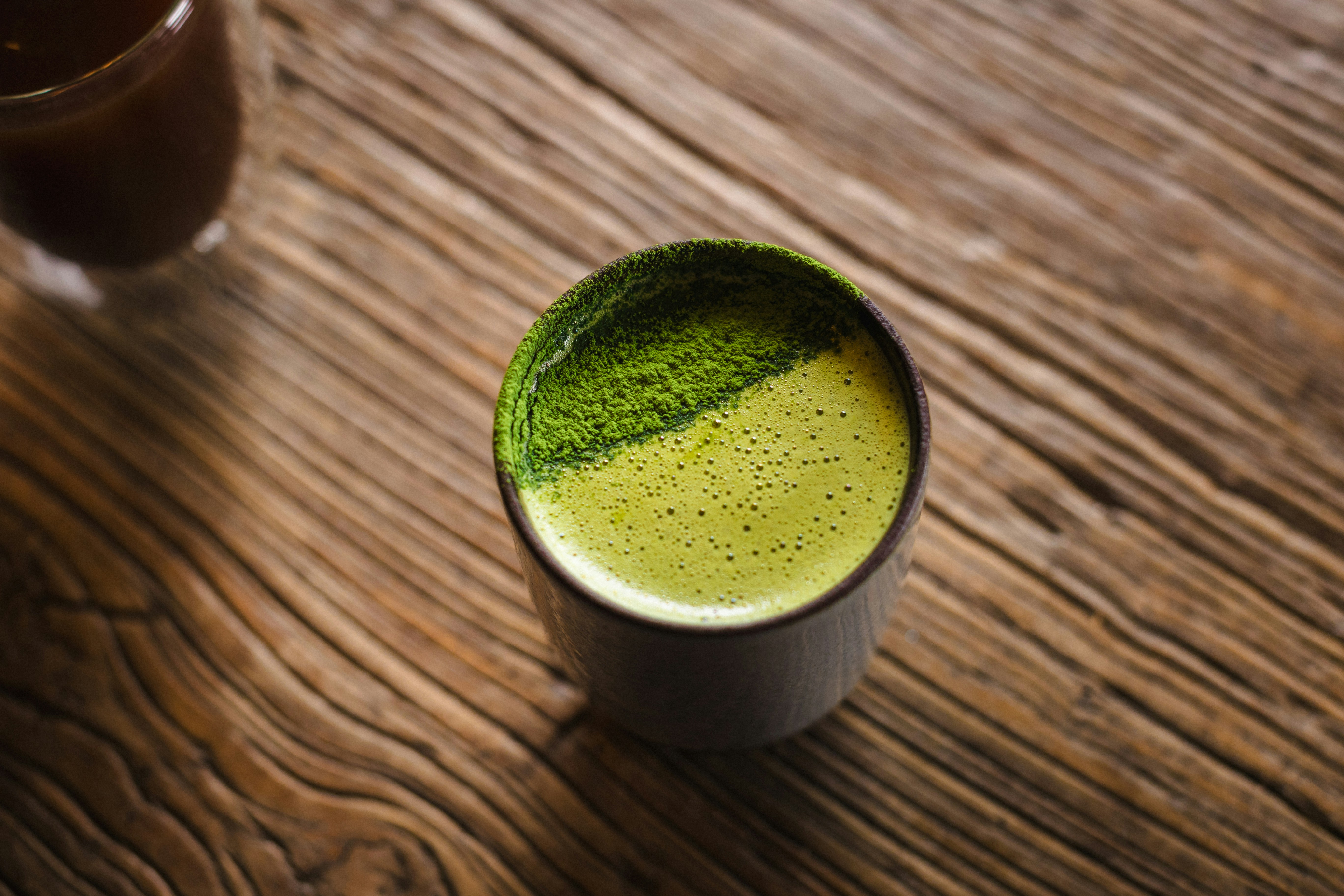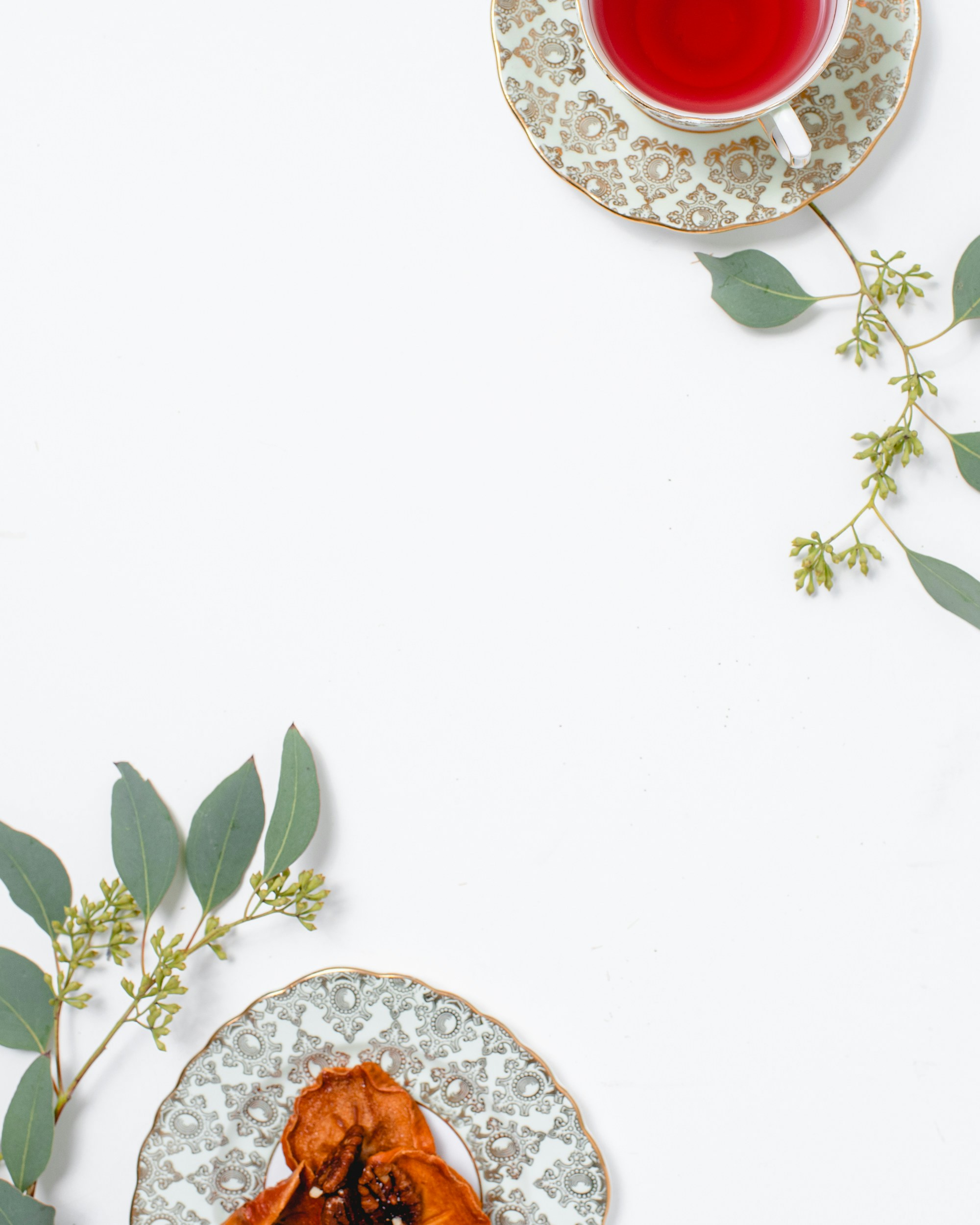Introduction: Discover the Essence of Oolong Tea
In today’s demanding, fast-paced world, prioritizing wellness routines has become absolutely essential for maintaining optimal health and overall well-being. Incorporating mindfulness practices, proper nutrition, and regular physical activity are the cornerstones of a healthier, more balanced lifestyle. Amidst the vast array of choices available, tea has emerged as a vital component of this wellness movement, offering not only essential hydration but also an impressive range of health benefits that contribute significantly to both mental and physical well-being. Within this diverse world of tea, Oolong tea stands out as a uniquely beneficial option deserving of special attention and exploration within your personal wellness journey.
Originating from the heart of traditional Chinese culture, Oolong tea is highly regarded for its distinctive flavor profile and remarkable, multifaceted health attributes. This traditional beverage undergoes a partial oxidation process, which places it intriguingly between green tea and black tea in terms of its distinctive taste and captivating aroma. This unique processing method has also cultivated a rich and fascinating history intertwined with ancient Chinese traditions. In these customs, tea is revered not merely as a drink but as a powerful symbol of warm hospitality, the pursuit of longevity, and achieving a harmonious balance in life. Throughout the centuries, numerous captivating stories and legends have evolved around the significance of tea, further enhancing its cultural importance and reinforcing its established role in various wellness practices across the globe.
In contemporary wellness routines, Oolong tea has earned substantial appreciation for its impressive potential health benefits, including its recognized contributions to weight management, promotion of heart health, and support of mental clarity and focus. The abundant antioxidants present in Oolong tea are widely believed to help combat oxidative stress, a key factor in overall health and longevity. As increasing numbers of individuals actively seek ways to enhance their wellness, Oolong tea presents a valuable addition to their routines, offering a compelling blend of time-honored tradition and cutting-edge health-forward attributes. In this comprehensive blog post, we will embark on a deep dive into the remarkable benefits of Oolong tea and explore how it can play an integral role in enhancing and enriching your unique wellness routine.
Understanding Oolong Tea: A Closer Look
Oolong tea, a traditional beverage steeped in rich Chinese culture, stands out for its unique flavor profile and the wide range of health benefits it offers. Primarily produced in the distinct terroirs of China and Taiwan, where its cultivation has spanned centuries, this remarkable tea has captured the attention of tea enthusiasts and health-conscious individuals alike. The name “Oolong” itself translates to “black dragon” in Chinese, an evocative description that alludes to the tea’s dark, twisted leaves and the mystique surrounding its origins.
Tracing its origins back to the Tang dynasty (618–907 AD), Oolong tea production has evolved over generations, incorporating distinctive techniques that differentiate it from other tea varieties. These carefully honed methods contribute to the unique characteristics that make Oolong tea a truly exceptional beverage. From the meticulous selection of tea leaves to the precise control of oxidation, every step in the process is imbued with tradition and expertise.
Cultivating Oolong tea requires meticulous attention to detail and a deep understanding of the plant’s lifecycle. Tea leaves are harvested at specific times, typically during the spring or fall seasons, to ensure optimal flavor and aroma development. Following harvest, the leaves undergo a unique process known as partial oxidation, a defining characteristic that distinguishes Oolong from other tea varieties like green or black tea. This oxidation level typically ranges between 10% to 80%, giving rise to a remarkably diverse range of flavor profiles—from delicate floral and fruity notes to rich, roasted undertones. The final product can vary significantly depending on factors such as the degree of oxidation, the specific production techniques employed, and the unique environmental conditions of the growing region. This variation allows for a spectrum of Oolong varieties, each with its own distinct characteristics.
Among the numerous types of Oolong, some of the most highly esteemed varieties include Tieguanyin, poetically known as the “Iron Goddess of Mercy,” and Da Hong Pao, meaning “Big Red Robe.” Each variety boasts distinct characteristics, influenced by a combination of factors including the specific growing region, altitude, and the prevailing climate conditions. The preparation of Oolong tea also adds to its allure. It is often brewed multiple times, with each subsequent steep revealing new layers of flavor and complexity. This multifaceted nature not only enhances the overall tea-drinking experience but also makes Oolong tea a truly valuable addition to any wellness routine, as its consumption has been associated with a multitude of health benefits.
Exploring the Health Benefits of Oolong Tea
Oolong tea, a time-honored beverage originating from China, is celebrated not only for its distinctive flavor but also for its multitude of health benefits, which have garnered considerable attention from wellness enthusiasts and researchers alike. Numerous studies suggest that incorporating Oolong tea into one’s wellness routine can play a significant role in weight management. Research indicates that specific compounds present in Oolong tea, such as catechins, may assist in boosting metabolism, promoting calorie burning, and enhancing fat oxidation.
Beyond weight management, Oolong tea is also believed to play a role in improving metabolism through its ability to help regulate blood sugar levels. Maintaining stable blood sugar levels can contribute to reducing cravings and sustaining energy levels throughout the day, fostering a more balanced and sustainable approach to dietary habits. Individuals who have integrated Oolong tea into their daily routine often report experiencing increased energy and a more mindful approach to their eating patterns.
Oolong tea is additionally associated with improved mental clarity and enhanced cognitive function. The moderate caffeine content in Oolong offers a gentler, more sustained form of stimulation compared to other caffeinated beverages like coffee, making it an appealing choice for those seeking to enhance focus and concentration without the jitters often associated with higher caffeine intake. Anecdotal evidence from Oolong enthusiasts suggests that including this tea in their daily rituals, particularly in the morning, has led to increased productivity and clearer, more focused thinking throughout the day.
Furthermore, the rich concentration of antioxidants found in Oolong tea plays a vital role in combating oxidative stress and reducing inflammation, factors that have been linked to various chronic health conditions. While individual results may vary, incorporating Oolong tea into a holistic wellness regimen can offer a range of health benefits that support both physical and mental well-being.
Cultural Significance: Rituals and Traditional Uses of Oolong Tea
Oolong tea, a semi-oxidized tea variety, occupies a prominent place in various cultures, especially in China and Taiwan, where it has been an integral part of social customs and traditional practices for countless generations. In these regions, tea drinking transcends the simple act of quenching thirst; it evolves into a cherished ritual that fosters meaningful connections among family and friends, strengthening social bonds and creating lasting memories.
In Chinese culture, tea ceremonies are significant social events, often featuring Oolong tea as the centerpiece. The Gongfu tea ceremony, for instance, emphasizes the meticulous preparation of Oolong tea, allowing participants to fully savor the intricate flavors and delicate aromas of this exceptional beverage. Each step in the ceremony, from selecting the appropriate teaware to the graceful pouring of the tea, is executed with deliberate mindfulness, reflecting the meditative qualities inherent in the tea-drinking experience.
Similarly, in Taiwan, Oolong tea is deeply interwoven into the fabric of social interactions. Family gatherings, festive occasions, and everyday moments often feature Oolong tea as a symbol of hospitality and shared experience. Whether enjoyed during a meal or served during conversations, Oolong tea signifies warmth, care, and a welcoming spirit.
Oolong tea’s significance extends beyond mere consumption. Its role in enhancing social interactions and fostering a sense of community highlights the remarkable power of this traditional beverage in enriching everyday life and cultural experiences. It represents a tangible link to the past, a celebration of the present, and a promise of shared moments in the future.
Oolong Tea and Mental Wellness: A Path to Tranquility
Oolong tea, the revered Chinese beverage, has garnered increasing recognition not only for its physical health benefits but also for its potential positive impacts on mental well-being. In today’s fast-paced, often overwhelming world, individuals are constantly seeking effective strategies to manage stress, improve mood, and promote emotional well-being. Oolong tea can be a valuable ally in this pursuit of mental clarity and tranquility.
The calming ritual of brewing and savoring a cup of Oolong tea provides an opportunity for mindfulness, offering a much-needed respite from the constant barrage of daily stressors. Oolong tea is rich in L-theanine, an amino acid known for its calming properties and its ability to reduce anxiety and promote relaxation. Engaging in the tea ritual allows individuals to immerse themselves fully in the present moment, fostering a state of mindfulness that can help mitigate the pressures of everyday life.
Numerous individuals have shared their personal stories of finding solace and comfort in their Oolong tea practices. The calming aroma and rich flavors of Oolong facilitate a sense of peace and relaxation, contributing to an overall improvement in mood and a greater sense of well-being. While Oolong tea can be a valuable addition to self-care practices, it is important to note that it should not be considered a replacement for professional mental health treatment. Those struggling with significant mental health challenges should seek guidance from qualified healthcare professionals.
Incorporating Oolong tea into a wellness regimen can create space for tranquility, mindfulness, and stress reduction. It is a valuable tool that complements other self-care strategies and contributes to a more holistic approach to cultivating a healthier, more balanced mind.
Integrating Oolong Tea into Your Daily Life
Integrating Oolong tea into your daily routine can be a simple yet powerful way to enhance your health and well-being. The versatility of Oolong tea allows for seamless integration into various lifestyles, whether you are a busy professional juggling multiple demands, a dedicated student focused on academics, or simply someone seeking moments of tranquility and self-care.
Brewing Oolong tea is straightforward and adaptable to your preferences. Oolong can be enjoyed in various forms, from loose leaves to convenient tea bags. For loose leaf Oolong, use approximately 2-3 grams of tea leaves per 6-8 ounces of water. Heat the water to a temperature between 190-200°F (88-93°C) and steep the leaves for 2-3 minutes. This allows the delicate flavors of the tea to fully develop without becoming overly bitter. For tea bags, simply follow the instructions provided on the packaging. Enjoying a freshly brewed cup of Oolong tea in the morning or during a mid-afternoon break can revitalize your mind and support various metabolic processes.
The timing of your Oolong tea consumption can also influence its effects. Drinking Oolong tea in the early afternoon can provide a gentle energy boost without the jitters often associated with stronger caffeinated beverages. Others prefer to integrate Oolong tea as a post-meal digestif, appreciating its ability to aid digestion while savoring its complex flavors.
Pairing Oolong tea with food can further enhance both the culinary and wellness experience. The floral and fruity notes of Oolong complement a wide range of dishes, from light seafood plates to more robust, savory meals. Oolong tea can also be creatively infused into smoothies and desserts, or even used as a unique ingredient in marinades, adding a touch of sophistication to your culinary repertoire while enriching your health routine.
Countless individuals have embraced Oolong tea as a cherished part of their daily rituals. Some individuals find that starting their day with a calming cup of Oolong tea sets a more mindful and grounded tone for the day ahead. Others enjoy sharing Oolong tea with friends and family during social gatherings, offering a sophisticated and healthy alternative to conventional beverages. These personal anecdotes underscore the adaptability of Oolong tea and the myriad ways it can be incorporated into everyday life.
Oolong Tea: A Journey of Spiritual Connection
The ritual of preparing and savoring Oolong tea extends beyond simple hydration; it represents a spiritual practice deeply rooted in mindfulness and self-reflection. In many cultures, the act of brewing Oolong tea is considered a sacred moment, a pause in the frenetic pace of daily life, allowing individuals to connect with their inner selves and cultivate a deeper awareness of the present moment. As the tea leaves unfurl and release their captivating aromas, the brewing process itself becomes a form of meditation, a sensory experience that invites introspection and contemplation.
The deliberate actions involved in brewing Oolong tea – heating the water, pouring it over the leaves, observing the delicate dance of the unfurling leaves – encourage a slowing down, a deep breath, and a focus on the present moment. This mindful brewing ritual can foster a stronger spiritual connection, providing a temporary escape from the external world and allowing individuals to turn their attention inward.
Many Oolong tea enthusiasts have shared stories of how this practice has facilitated enhanced self-reflection, enabling them to gain a deeper understanding of their thoughts, emotions, and inner landscape. By fostering a state of presence, Oolong tea can serve as a catalyst for profound personal insights and growth.
In essence, integrating Oolong tea into one’s wellness routine offers not only physical health benefits but also a profound emotional and spiritual sanctuary. This calming ritual invites individuals to pause, reflect, and connect with their innermost selves, fostering a deeper understanding of the mind-body-spirit connection.
Choosing High-Quality Oolong Tea: A Guide for Discerning Tea Lovers
Selecting high-quality Oolong tea requires careful consideration of several key factors to ensure you experience the fullest expression of its flavor, aroma, and potential health benefits. The source of the tea is paramount. Opting for teas from reputable regions known for their Oolong production, such as Taiwan or the Fujian province of China, often indicates a higher level of quality due to the specialized cultivation practices employed in these areas. Authenticity is crucial, as genuine Oolong tea possesses unique characteristics that are difficult to replicate elsewhere. Look for certifications or seals of authenticity to verify the origin and quality of the tea.
Aroma is another key indicator of quality. High-quality Oolong tea is characterized by its complex and nuanced floral and fruity notes, which should be immediately apparent upon opening the package. Before purchasing, take a moment to inhale the aroma of the tea leaves. Fresh, top-grade Oolong will exhibit a rich, enticing aroma that hints at the delightful sensory experience to come. A weak or absent aroma may suggest inferior quality or improper storage.
The visual appearance of the tea leaves also provides valuable clues about its quality. Look for whole, tightly rolled leaves rather than broken pieces or dust. Whole leaves generally indicate a higher-grade tea and tend to deliver a more robust, full-bodied flavor. A vibrant green color, often with subtle dark tips, is characteristic of Oolong tea and reflects its unique processing method. Choosing Oolong tea with these visual characteristics enhances not only your wellness routine but also provides assurance that you are investing in a product of integrity. Consider seeking out suppliers who prioritize ethical and sustainable sourcing practices, supporting both the environment and the communities involved in tea production.
Conclusion: Embracing the Path to Wellness with Oolong Tea
As we’ve explored the remarkable benefits of Oolong tea, it’s clear that this traditional beverage offers much more than just a refreshing drink. Its unique combination of antioxidants, coupled with its potential to aid in weight management, improve mental clarity, and support overall well-being, makes Oolong tea a valuable addition to any wellness routine. Oolong tea not only hydrates but also nourishes the body and mind, fostering a holistic approach to health.
Oolong tea’s versatility allows for effortless integration into daily life, whether savored during quiet moments of reflection or shared with loved ones in social settings. Its balanced flavor profile appeals to a wide range of palates, making it accessible to anyone seeking to enhance their health and wellness journey. Incorporating Oolong tea into one’s diet may lead to increased energy levels, improved mental focus, and a greater sense of overall well-being.
Beyond its physiological benefits, engaging with Oolong tea encourages a mindful approach to self-care. Each cup can serve as a gentle reminder to pause, reflect, and nurture both body and spirit. This mindful consumption enriches not only our physical health but also fosters a sense of community and connection among those who share in the appreciation of this exceptional beverage.
We invite you to embark on your own exploration of the diverse world of Oolong tea and discover its remarkable potential to enhance your personal wellness journey. Share your own experiences and stories with Oolong tea, and let us collectively celebrate the transformative power of this extraordinary beverage as we embrace its many contributions to overall well-being.







Leave a Reply